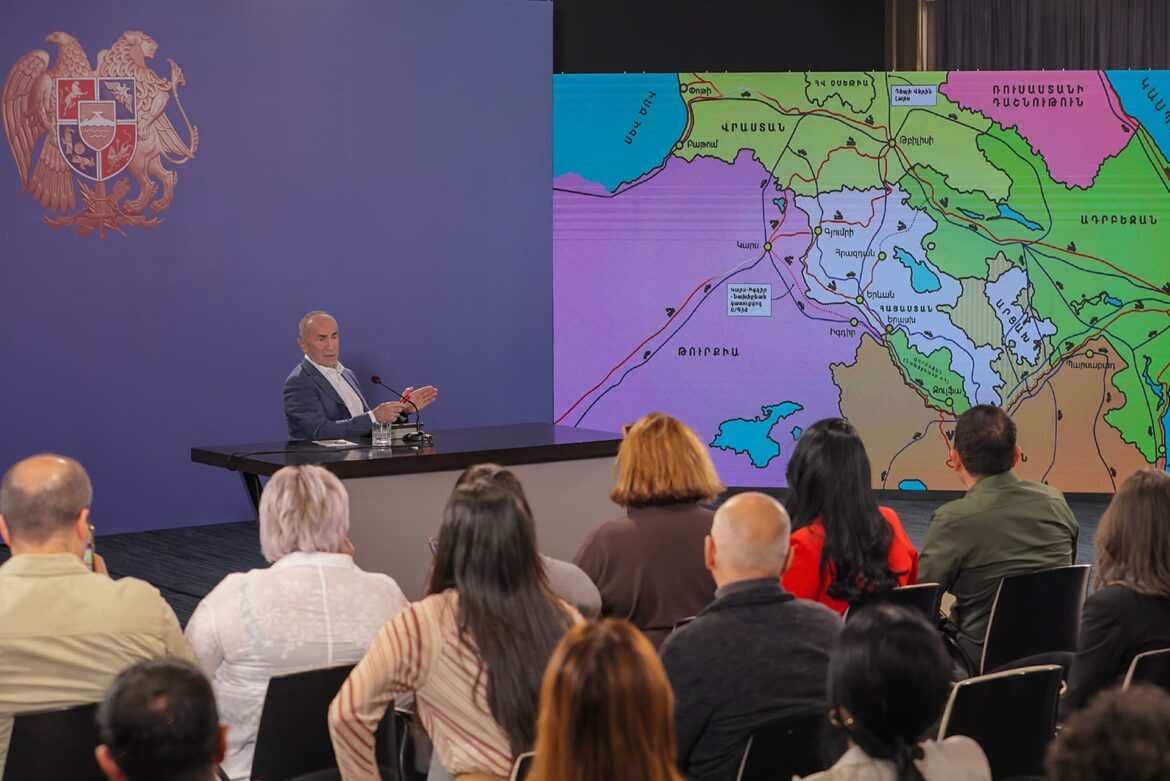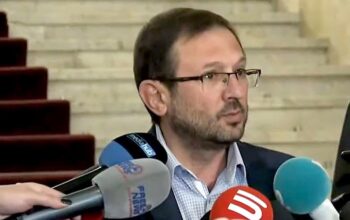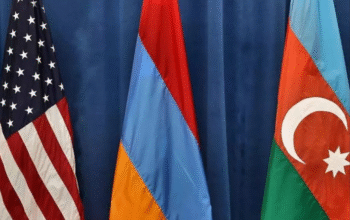In a political climate too often saturated with spectacle, Robert Kocharyan’s recent press conference stood out for something rare in today’s Armenia: a coherent governing program. Without bravado or evasions, Kocharyan laid out a map for restoring deterrence, protecting strategic infrastructure, and re-centering Armenia’s diplomacy on tangible national interests—not photo-ops.
The “Trump Corridor” and the Price of Paper Promises
Kocharyan’s most forceful intervention came on the so-called U.S. “Trump Corridor” arrangements. He cut through the fog: the August 8 agreements put Washington in a position to shape a potential east-west corridor across Armenia, offered it leverage over our border with Iran, and—tellingly—produced the political theater of a Nobel nomination for Donald Trump. Azerbaijan, meanwhile, pocketed concrete gains: corridor rights through Armenian territory, the dissolution of the OSCE Minsk Group, and repeal of Section 907. Armenia received nothing of substance—only a non-binding text and a photograph of Prime Minister Pashinyan with Trump.
The stakes are strategic, not symbolic. Handing effective control of Armenian transit to external powers risks a rupture with Iran and bakes long-term vulnerabilities into our geography. Kocharyan’s corrective is simple and state-minded: if there is to be any corridor diplomacy, Armenia must demand real, priced benefits, including the reopening of the Yeraskh–Julfa–Iran line and the Armenia–Russia railway. Connectivity must strengthen Armenian sovereignty—not hollow it out.
Peace That Can Be Kept
The government’s “peace agenda,” as Kocharyan noted, is built on hope rather than safeguards. A peace dependent on Azerbaijan’s goodwill—without guarantees, guarantors, or snap-back enforcement—invites pressure, not reconciliation. Kocharyan proposed the opposite: a monitored framework with international guarantors that are answerable for violations. That is how vulnerable states negotiate peace they can actually keep.
The numbers tell the rest of the story. With Baku expanding its military budget while Yerevan trims its own, Armenia is signaling permissiveness, not prudence. “Lasting peace is the kind that rests on a balance of power,” Kocharyan warned. “If it does not, then peace depends on the goodwill of one side.” No responsible leadership should premise the country’s security on the goodwill of a regime that celebrates the beheader of an Armenian officer.
Strategic Projects Without Stagecraft
On nuclear energy, Kocharyan dismissed the government’s modular-reactor chatter for what it is: stagecraft unmoored from technical reality. Only Russia has operational small modular units; yet policy theatrics continue while Turkey persistently agitates for the closure of Armenia’s plant. A serious government would insulate strategic energy from foreign pressure, secure lifetime extensions or proven replacement capacity, and tell the public what is feasible, when, and on what terms.
Elections: Participation, Discipline, and a Clear Red Line
Kocharyan confirmed his team will contest the 2026 elections, with leadership determined by sociological data—a commitment to merit and viability over ego. He was candid about the stakes: if the opposition avoids unforced errors, “Pashinyan’s chances for re-election are nearly zero.” The real danger, he cautioned, is not a competitive loss but non-competitive interference, pointing to Moldova’s 2021 playbook—massively skewed diaspora polling access in Europe, almost none in Russia—previously echoed in Romania. Any attempt to reproduce that model in Armenia, he warned, would trigger a democratic backlash. Stealing votes will lead to a revolution—not because anyone craves turmoil, but because a nation deprived of lawful recourse inevitably asserts one.
On impeachment, Kocharyan reiterated that his faction holds 28 votes and identified year-end as a reasonable horizon for constitutional accountability—not as theater, but as the normal operation of a republic that refuses to drift.
A Parliament That Works—and a Coalition That Governs
Coalition politics, in Kocharyan’s telling, is not optional but necessary. The next parliament will need programmatic cooperation among forces that reject coalition with Civil Contract. Unity after the vote—on core state interests, not factional bookkeeping—is how you stabilize policy, negotiate from strength, and govern beyond one news cycle.
Identity, Responsibility, and the Republic
Kocharyan also spoke personally. He reminded the country that he chose to remain in Armenia when leaving would have been easier. That choice is not biographical trivia; it is the measure of what leadership means in a small, embattled state. He tied that commitment to the living symbols of the nation—Mount Ararat and the values that have steadied Armenians across centuries.
Against this, he set a stark warning: a government that has stained the Third Republic with blood cannot launder its record by proclaiming a “Fourth Republic.” Names do not absolve deeds. Responsibility is not erasable by rebranding.
From Critique to Construction
The press conference was not a list of grievances; it was a framework for reconstruction:
- Sovereignty in corridors, not servility. No corridor without priced benefits to Armenia: reopen Yeraskh–Julfa–Iran and Armenia–Russia railways, or no deal.
- Peace with guarantees. An enforceable agreement with international monitoring and guarantors—not unilateral trust in Baku.
- Defense that deters. Halt the slide in defense spending while the adversary surges; restore a balance that makes peace sustainable.
- Energy that endures. Treat nuclear capacity as strategic infrastructure, shielded from foreign political campaigns and domestic theatrics.
- Elections that count. Full participation, methodical discipline, and zero tolerance for imported vote-rigging schemes.
This is what serious statecraft looks like: not incendiary slogans, but a chain of decisions that make Armenia safer next year than it is today. Kocharyan’s message was austere and adult: our security will not be gifted to us; it will be built—in rail links that serve our interests, in budgets that deter aggression, in treaties that can be enforced, and in elections that actually measure the will of the people.
The alternative is the inertia we know too well: paper agreements, asymmetric “peace,” performative megaprojects, and a politics that swaps responsibility for spectacle. Armenia cannot afford that any longer. The path outlined at this conference asks more of the state—but it also promises more to the nation: sovereignty with substance, peace with guarantees, and growth with strategy. That is the horizon to aim for, and it starts with choosing seriousness over slogans.




